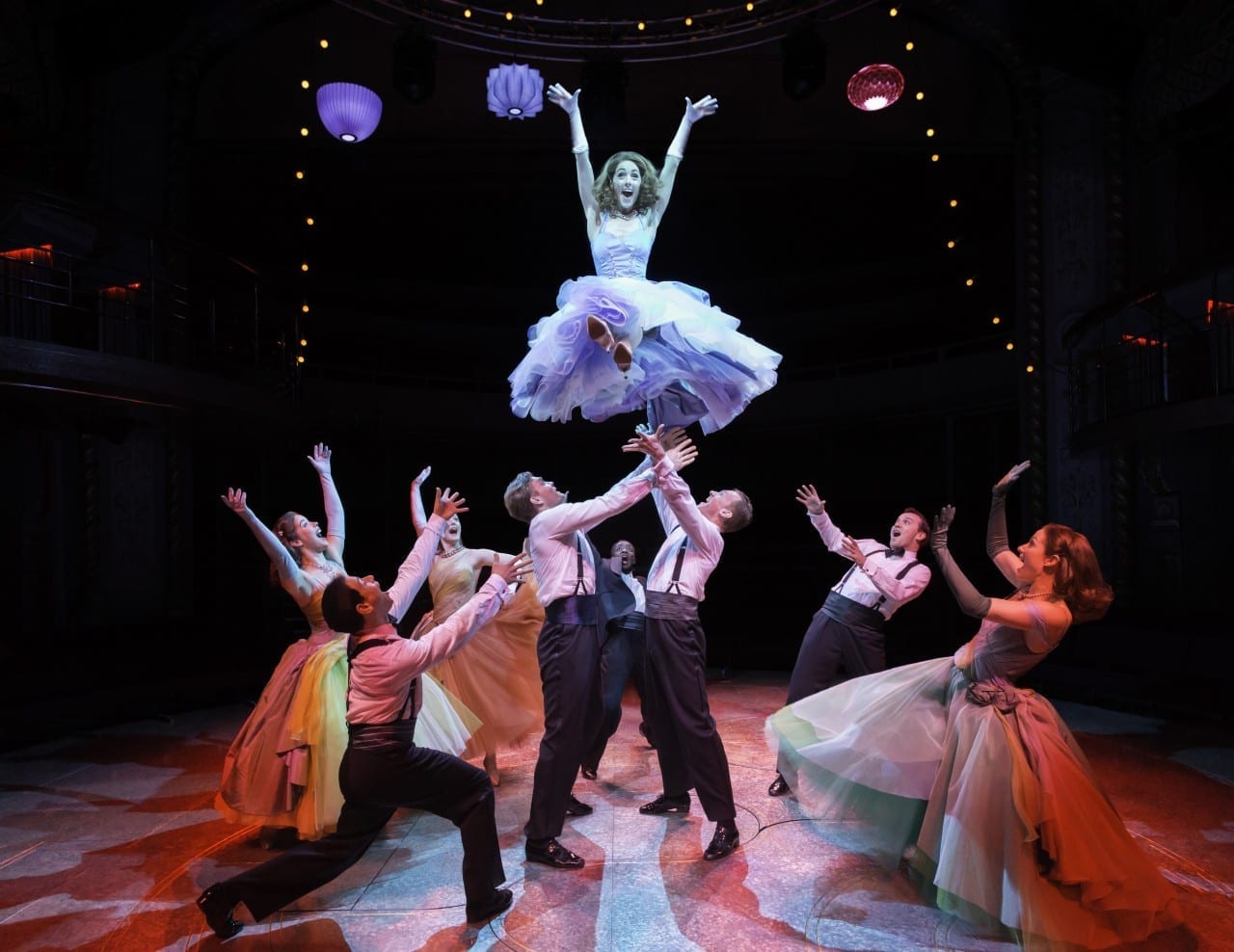A rip-roaring, rambunctious work, High Society is a production that entertains the audience from its very first note. The decision to play it in the round results in some creative uses of the balconies and side entrances, with the aisle stairs providing an excellent way to draw focus from the main dancing and singing to a more subtle, emotional moment happening slightly to the side. It adds depth and realism, something surprisingly prevalent in this production of Porter’s tongue-in-cheek look at the American upper class.
The ensemble cast are already milling around as the audience enter, beginning party preparations and chatting with Joey Powell (Joe Stilgoe), already tinkling away on the ivories. A consummate performer such as Stilgoe must be allowed his time to shine, and although the later piano sequence is a tad self-indulgent, this initial sing-a-long is perfectly pitched. He banters back and forth with the audience, and although this is a section that may not add much in terms of plot it is great fun, getting the crowd ready for an evening of entertainment.
In such an amped up musical setting, one which fits the heightened world of the upper classes, very little is naturalistic – pianos disappear and reappear with a finger-click, and some truly excellent light design (Peter Mumford) evokes swimming pools and fireworks with ease. Dinah Lord’s (Ellie Bamber) irrepressible character slots into this setting like she was born for it, and although Bamber’s delivery can be slightly strident at times, when the production calls for over-the-top and unabashed – such as in the hilarious ‘Paris in Springtime’ sequence – she really shines.
As is only appropriate, Kate Fleetwood (Tracy Lord) and Rupert Young (C K Dexter Haven) steal the show whenever they are together. Young’s voice may be slightly weaker than those of other members of the cast, but he more than makes up for it with his effortless charm and sense of ease, seamlessly sliding into the role of good-hearted upper-class layabout. His lovelorn glances at Tracy evoke our sympathy, and his rough-and-tumble songs with Dinah are an enormous joy to watch. Fleetwood’s voice is stunning, and she brings enormous vulnerability to a difficult role. Her physical presence on stage is captivating, but she is at her best when the supressed emotion is teetering on the edge, rather than when they are allowed to break free.
Despite the impressive turns of the lead actors, arguably the real stars are the ensemble, who work seamlessly together, providing a sort of relaxed Greek chorus. Their general air of togetherness and satisfaction contrast well with the chaos of the Lords, but they are still humanised. The ensemble all excel at individualising their parts and making what they’re doing in the background interesting and realistic, adding greatly to the scenes. It is a genuine pleasure to watch their relationships and characters unfold in the background, all done subtly enough that it never distracts from the main plot.
Action-packed, this is a production that shines in the moments it allows itself to be emotionally vulnerable, the moments in which the characters are allowed to breathe are ones to be treasured. The big dance numbers are rollicking good fun, and to prize the moments of emotional depth is not to take away from the easy charm exhibited by the production as a whole. High Society is a piece that shines because of those moments, but that retains its appeal because it understands the value of fun. The audience left smiling fit-to-burst, and sometimes that is exactly what you want.

